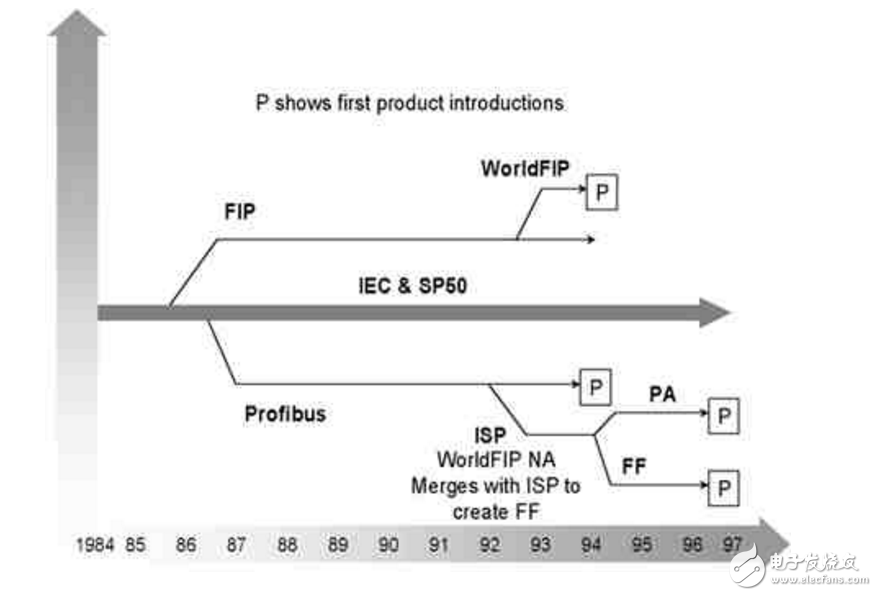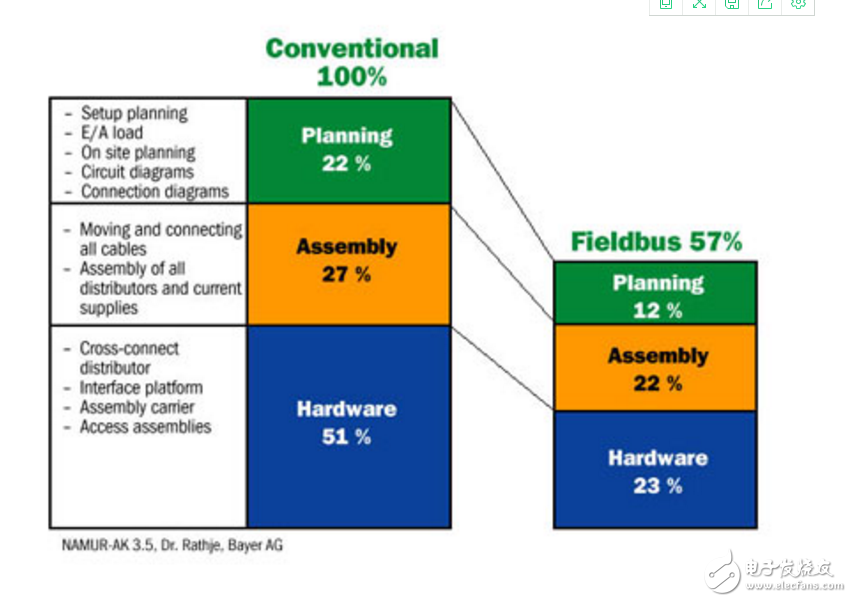Fieldbus (Fieldbus) is an industrial data bus that has been rapidly developed in recent years. It mainly solves the digital communication between field devices such as intelligent instrumentation, controllers and actuators in industrial field, and these field control devices and advanced control systems. The problem of information transfer between. Due to the outstanding advantages of fieldbus, such as simple, reliable, economical and practical, it has been highly valued by many standards bodies and computer manufacturers.

Fieldbus technology development:
Fieldbus is an industrial communication system in an automation system that connects a large number of field-level devices with operational-level devices. It is generally defined as: an open, digital, bidirectional serial, multi-node communication bus for intelligent field devices and automation systems.
Fieldbus (Fieldbus) was developed internationally in the late 1980s and early 1990s for field intelligent device interconnection communication networks in the fields of process automation, manufacturing automation, and building automation. As the basis of the factory's digital communication network, it communicates the relationship between the production process site and the control equipment and its relationship with higher control management. It is not only a grassroots network, but also an open, new fully distributed control system. This integrated technology with intelligent sensing, control, computer, digital communication and other technologies has attracted worldwide attention and become a hot spot in the development of automation technology, and will lead to profound changes in the structure and equipment of automation systems. Many internationally powerful and influential companies have developed fieldbus technologies and products to varying degrees. The working environment of the fieldbus device is at the bottom of the process equipment. As the factory equipment level basic communication network, it requires the characteristics of simple protocol, strong fault tolerance, good security and low cost: certain time certainty and high real-time performance. Requirements, but also network load stability, mostly for short frame transmission, frequent information exchange and so on. Due to the above characteristics, the field bus system has the characteristics of different upper layer high speed data communication networks from network structure to communication technology.

Fieldbus technology
The fieldbus system is generally referred to as the fifth-generation control system, also known as FCS-fieldbus control system. People generally refer to the PCS as the first generation of the Pneumatic Signal Control System before the 1950s. The electric analog signal control system such as 4-20 mA is called the second generation, and the digital computer centralized control system is called the third generation. The distributed distributed control system DCS since the middle of the decade is called the fourth generation. As a new generation control system, the fieldbus control system FCS breaks through the limitations of the DCS system using a communication-dedicated network. It adopts an open and standardized solution to overcome the defects caused by the closed system. On the other hand, the DCS The centralized and decentralized system of distributed systems has become a new fully distributed structure, and the control functions have been completely decentralized to the scene. It can be said that openness, dispersion and digital communication are the most prominent features of the fieldbus system.
Switching Current Transformer,Outdoor Switching Current Transformer,Busbar Built-In Current Transformer,Outdoor Split Core Current Transformer
Zibo Tongyue Electronics Co., Ltd , https://www.tongyueelectron.com
